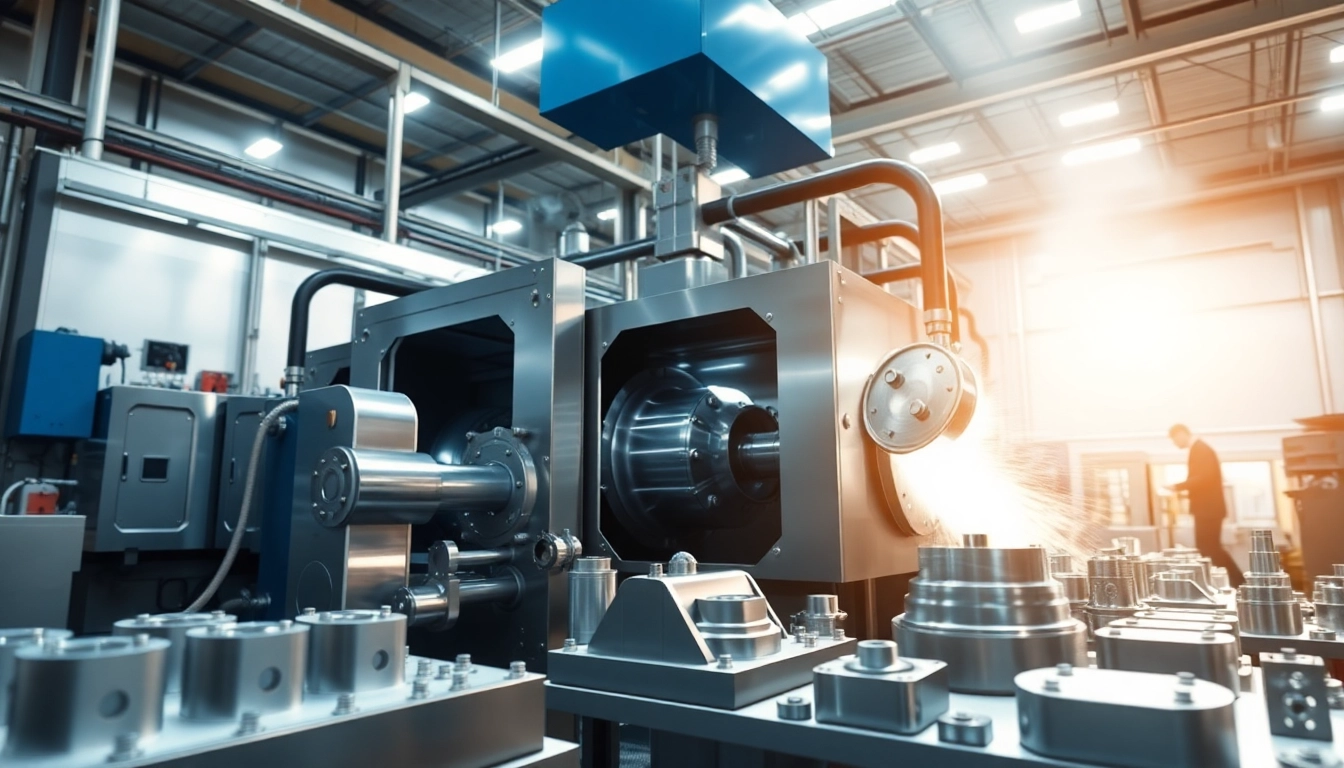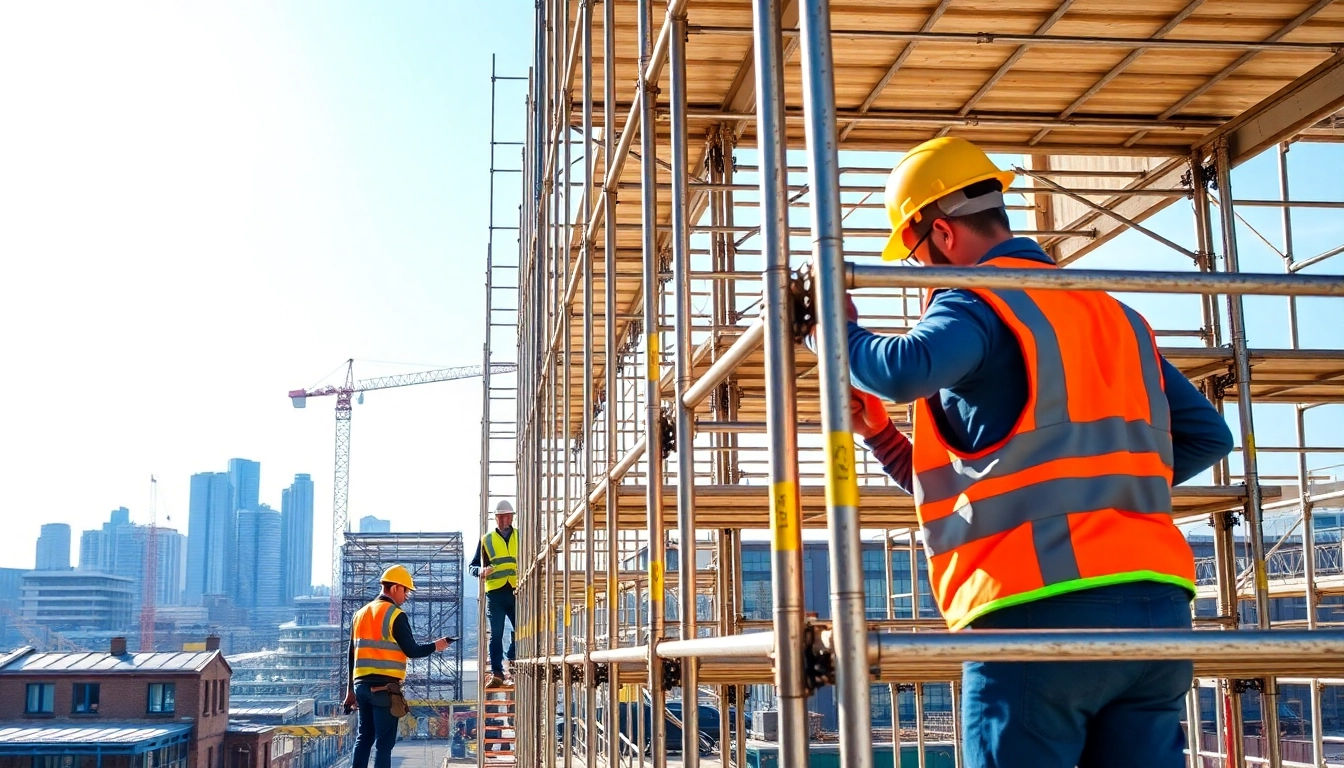Understanding Aluminum Die Casting in Malaysia
Aluminum die casting is a vital manufacturing process that enables the production of complex aluminum components with precision and efficiency. In Malaysia, the industry has evolved significantly, leveraging advanced technologies and a skilled workforce to meet the growing demands of various sectors. The die casting process allows for high volume production with consistent quality and tight tolerances, which is crucial for industries such as automotive, electronics, and consumer goods. When exploring options, aluminum die casting malaysia offers comprehensive insights into this dynamic market and its capabilities.
The Process of Aluminum Die Casting
The aluminum die casting process involves injecting molten aluminum into a mold cavity under high pressure. This technique enables the production of intricate shapes and detailed features that would be difficult to achieve with other manufacturing methods. The primary steps in this process include:
- Mold Preparation: Molds are created from steel or iron, designed to endure the high pressure and temperature of the casting process.
- Melting Aluminum: Aluminum is heated until it reaches a molten state, generally around 660°C (1220°F).
- Injection: The molten aluminum is injected into the mold cavity quickly to fill it completely before it solidifies.
- Cooling and Ejection: After cooling for a specified period, the mold is opened, and the solidified part is ejected.
Applications of Aluminum Die Casting
Aluminum die casting is widely used across various industries due to its versatility. Some notable applications include:
- Automotive Components: Parts such as engine blocks, transmission cases, and structural components are commonly produced using this method.
- Electronics: Housings for devices like computers, smartphones, and other consumer electronics benefit from the lightweight and strong nature of aluminum.
- Industrial Equipment: Components used in machinery and tools are manufactured to withstand rigorous operational demands.
Key Benefits of Using Aluminum Die Casting
There are numerous advantages to utilizing aluminum die casting, including:
- Precision: The casting process allows for tight tolerances, resulting in consistent quality.
- Speed: High-speed production capabilities make it ideal for large-volume manufacturing.
- Lightweight: Aluminum is significantly lighter than many other metals, providing efficiency in transportation and application.
- Corrosion Resistance: Aluminum’s natural oxidation layer protects components from environmental damage.
Market Trends Influencing Aluminum Die Casting in 2025
The aluminum die casting market in Malaysia is poised for significant growth, driven by various trends shaping industries worldwide. Understanding these trends is crucial for manufacturers aiming to stay competitive.
Emerging Technologies in Die Casting
Innovation in die casting technology continues to push the boundaries of what can be achieved. Some of the key advancements include:
- Automated Processes: The integration of robotics and automation improves efficiency and reduces labor costs.
- 3D Printing: Rapid prototyping through additive manufacturing allows for faster design iterations and reduced lead times.
- Advanced Alloys: New alloy compositions enhance the material properties of die-cast components, such as strength and fatigue resistance.
Shifts in Industry Demand and Supply
As demand for aluminum die casting grows, particularly in sectors like automotive and renewable energy, manufacturers must adapt to changing market conditions. Key factors influencing demand include:
- Electric Vehicles (EVs): The rise of EVs necessitates lightweight and efficient components, which drives aluminum adoption.
- Sustainability: Companies are increasingly prioritizing sustainable practices, influencing material choices and production methods.
Sustainability Practices in Aluminum Die Casting
Sustainable manufacturing practices are becoming essential in the aluminum die casting industry. Efforts include:
- Recycling: Recycling aluminum helps reduce waste and lowers energy consumption compared to primary production.
- Energy Efficiency: Implementing energy-efficient technologies reduces the carbon footprint of manufacturing operations.
Challenges Faced by Aluminum Die Casting Manufacturers
Despite the opportunities in the market, aluminum die casting manufacturers face several challenges that need to be addressed to maintain competitiveness.
Quality Control Issues in Aluminum Parts
Maintaining quality across production runs is crucial for manufacturers. Common quality control challenges include:
- Defects: Ensuring the absence of defects such as porosity, cracking, or dimensional inaccuracies is paramount.
- Testing Standards: Adhering to industry-specific testing standards can be resource-intensive.
Cost Management Strategies
Effective cost management is vital for profitability. Strategies include:
- Process Optimization: Streamlining operations and reducing waste can significantly lower production costs.
- Sourcing Materials: Establishing strong relationships with suppliers can help mitigate fluctuations in raw material prices.
Regulatory Requirements and Compliance
Manufacturers must navigate a complex landscape of regulations concerning safety and environmental standards. Keeping abreast of these requirements is critical to avoid penalties and ensure compliance.
Best Practices for Aluminum Die Casting Operations
To thrive in a competitive market, manufacturers should adopt best practices that enhance operational efficiency and product quality.
Optimizing Die Design for Efficiency
Investing in well-designed dies is essential for effective aluminum die casting. Key considerations include:
- Cooling Channels: Proper cooling channel design reduces cycle times and enhances part quality.
- Draft Angles: Incorporating suitable draft angles aids in smooth ejection and minimizes wear on the die.
Implementing Lean Manufacturing Principles
Lean principles focus on minimizing waste while maximizing productivity. Techniques such as value stream mapping and continuous improvement initiatives can lead to substantial gains in efficiency.
Ensuring Safety in the Casting Process
Maintaining a safe work environment is non-negotiable. Safety protocols should be regularly updated to reflect best practices in handling molten metal and operating heavy machinery.
The Future of Aluminum Die Casting in Malaysia
Looking ahead, the prospects for aluminum die casting in Malaysia are bright and full of opportunities. Industry stakeholders must remain agile and responsive to emerging trends.
Innovative Material Solutions for 2025
The development of advanced materials will enable manufacturers to produce components that meet increasingly stringent performance and sustainability requirements. Innovations may include:
- Hybrid Materials: Combining aluminum with other materials to enhance properties or reduce weight.
- Smart Alloys: Alloys that respond to environmental changes could revolutionize component design.
Market Expansion Opportunities
As global demand for aluminum continues to rise, Malaysian manufacturers have opportunities to expand their reach into new markets, particularly in Asia-Pacific and beyond. Collaboration with international partners can foster growth and innovation.
Expert Predictions for the Die Casting Industry
Experts predict that the aluminum die casting industry will continue to grow, driven by technological advancements and an increasing focus on sustainability. Automotive and electronics sectors are expected to lead this growth, emphasizing the need for high-quality, cost-effective solutions.

